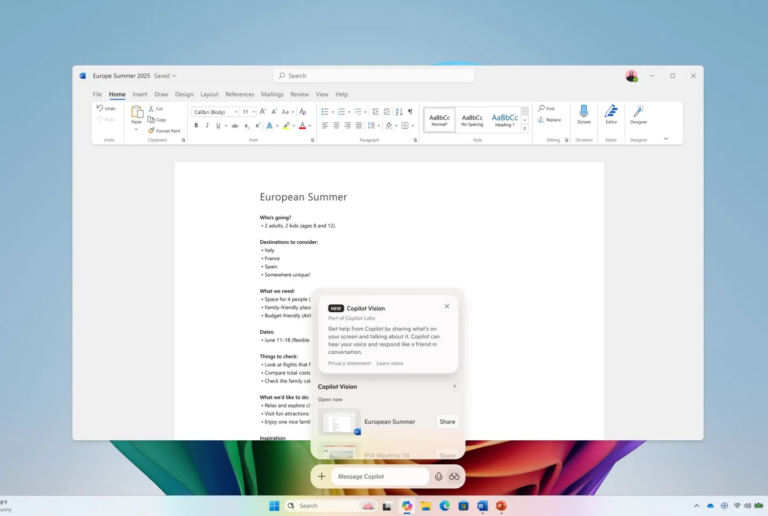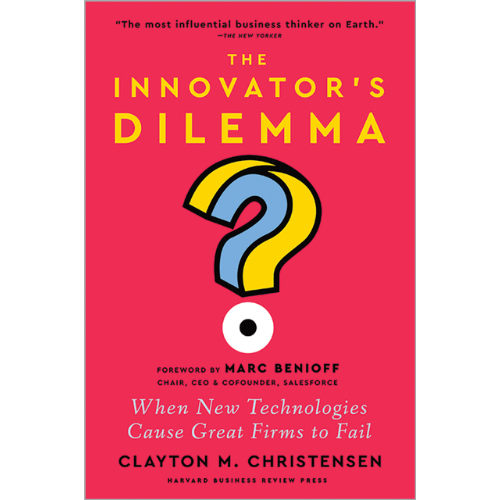
Exploring this week’s tech releases, AI tools, and more:
🧠 Stanford’s 2025 AI Index shows rapid global AI growth, U.S. model dominance, and rising competition from China.
📚 Lesson of the Week: Learn to convert categories to numbers, code it in Python, and avoid bias.
🖥️ Copilot Vision adds real-time, on-screen guidance and smart file search to Microsoft’s AI assistant.
🗺️ Weekly Tech Tip: 7 Google Maps Travel Hacks for Stress-Free Trips.
🚀 What’s New: Interactive learning resources and improved questions coming soon!
📕 Book of the Week: “The Innovator’s Dilemma” by Clayton M. Christensen.
Get a Quick Lesson In
Stanford Releases its 2025 AI Index
The 2025 AI Index Report from Stanford HAI offers a striking snapshot of how AI tools are reshaping the world—faster and more deeply than ever.
From record-breaking benchmark gains and booming global investment to the rise of AI tools in medicine, transportation, and science, the report captures a field in full acceleration.
It also reveals widening gaps: between countries leading in AI tools and innovation and those catching up, between responsible AI ideals and on-the-ground practices, and between rising public optimism in some regions and deep skepticism in others.
Lesson of the Week
Sourced from our action-based skill, “Convert categorical data to numeric,” learn how to choose the right encoding method, apply it step by step in Python, and ensure your transformations lead to accurate, meaningful analysis without introducing bias.
Question of the Week:
How does one-hot encoding impact the dimensionality of a dataset?
Select one:
A) It replaces all of the categorical variables with a single binary column.
B) It reduces the dimensionality of a dataset.
C) It increases the dimensionality of a dataset.
D) It simplifies the data by converting categorical variables into a binary format.
See if you’re right–the answer is at the bottom!
MS Copilot Just Got Vision–Ready to Try It?
Microsoft is rolling out an exciting update to its Copilot app called Copilot Vision, turning its AI tool into a real-time, on-screen guide for any app on your PC.
Whether you’re navigating Photoshop, optimizing video in Clipchamp, or playing Minecraft, Copilot—one of Microsoft’s most powerful AI tools—can now highlight features and walk you through tasks visually.
The update also brings smart file search across documents like PDFs and spreadsheets, with broader release planned after initial U.S.-only testing.
Weekly Tech Tip
7 Google Maps Travel Hacks for Stress-Free Trips
-
Use the Directory tab to find food, shops, and lounges in airports or train stations fast.
-
Check real-time busyness levels of areas to avoid crowds and wasted trips.
-
Book reservations directly in Google Maps—no phone calls needed.
-
Download offline maps before remote trips to navigate without cell service.
-
Share your live location with travel companions to easily reconnect.
-
Save and share trip ideas using Google Maps lists for organized travel planning.
-
Use Gemini, Google’s built-in AI tool, for itinerary planning and local recs.
What's New
Interactive videos and manipulatives are coming to select activities for a more hands-on learning experience. Plus, foundational improvements to Cloze questions are underway, with bigger enhancements coming soon–especially for coding lessons.
Book of the Week
Clayton M. Christensen’s “The Innovator’s Dilemma” explores how even successful companies can fail by ignoring disruptive technologies.
The book outlines strategies for recognizing and adapting to innovation that challenges traditional business models, offering actionable insights from real-world corporate case studies.
Additional Tidbits
WordPress.com launches a free AI-powered website builder
Instagram tests locked reels that can be accessed with secret codes
Google Maps is launching tools to help cities analyze infrastructure and traffic
Exclusive: TSMC could face $1 billion or more fine from US probe, sources say
Jump Back Into QuantHub

Lesson of the Week Answer:
C) It increases the dimensionality of a dataset.


